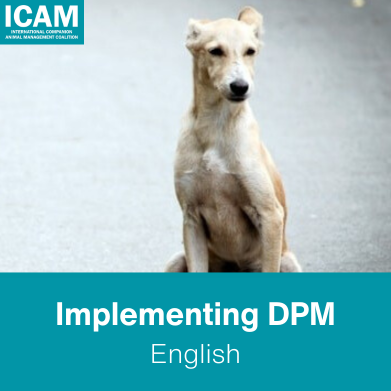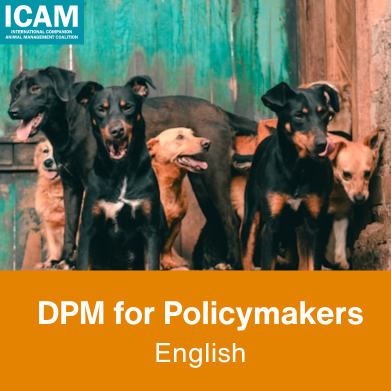ICAM’s free eLearning courses give you the knowledge, tools, and confidence to create humane, sustainable solutions to dog population challenges.
Whether you’re delivering programmes on the ground, shaping policy, or working with communities, you’ll find practical, evidence-based training you can apply right away. Earn personalised certificates as you build skills that benefit both animals and people.
Implementing DPM and DPM for Policymakers are now available in English, French, Spanish, Brazilian Portuguese, Ukrainian, Chinese, Arabic, Bosnian, and Russian, helping to make ICAM’s guidance more accessible across different regions and contexts.
For questions, feedback, or support related to ICAM’s eLearning courses, please contact learn@icam-coalition.org.




